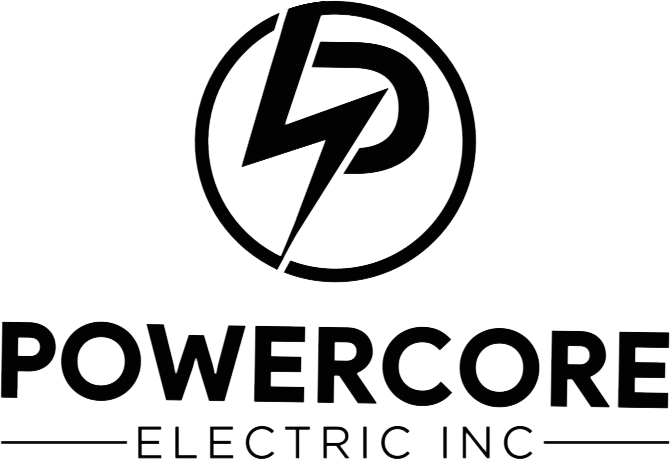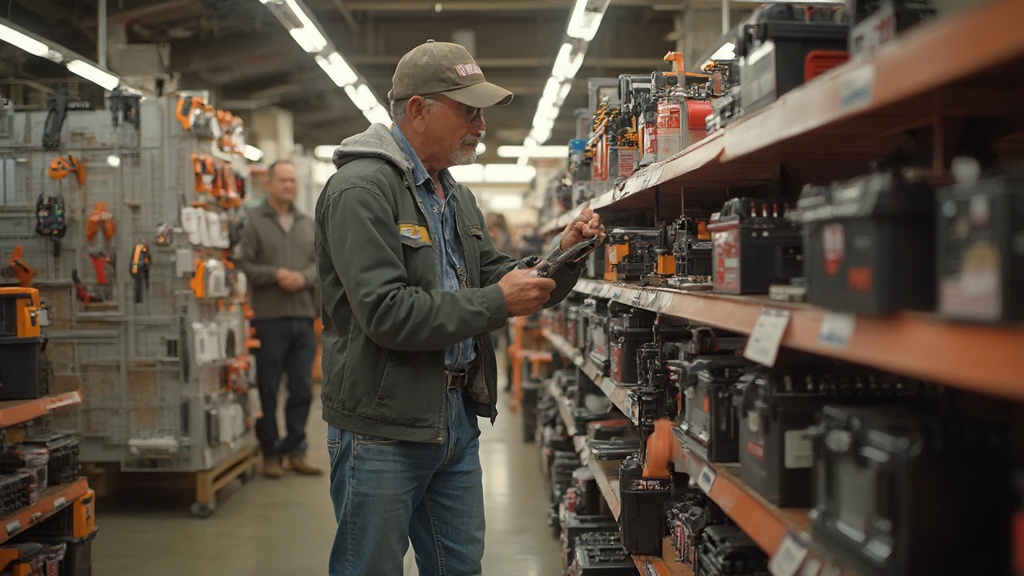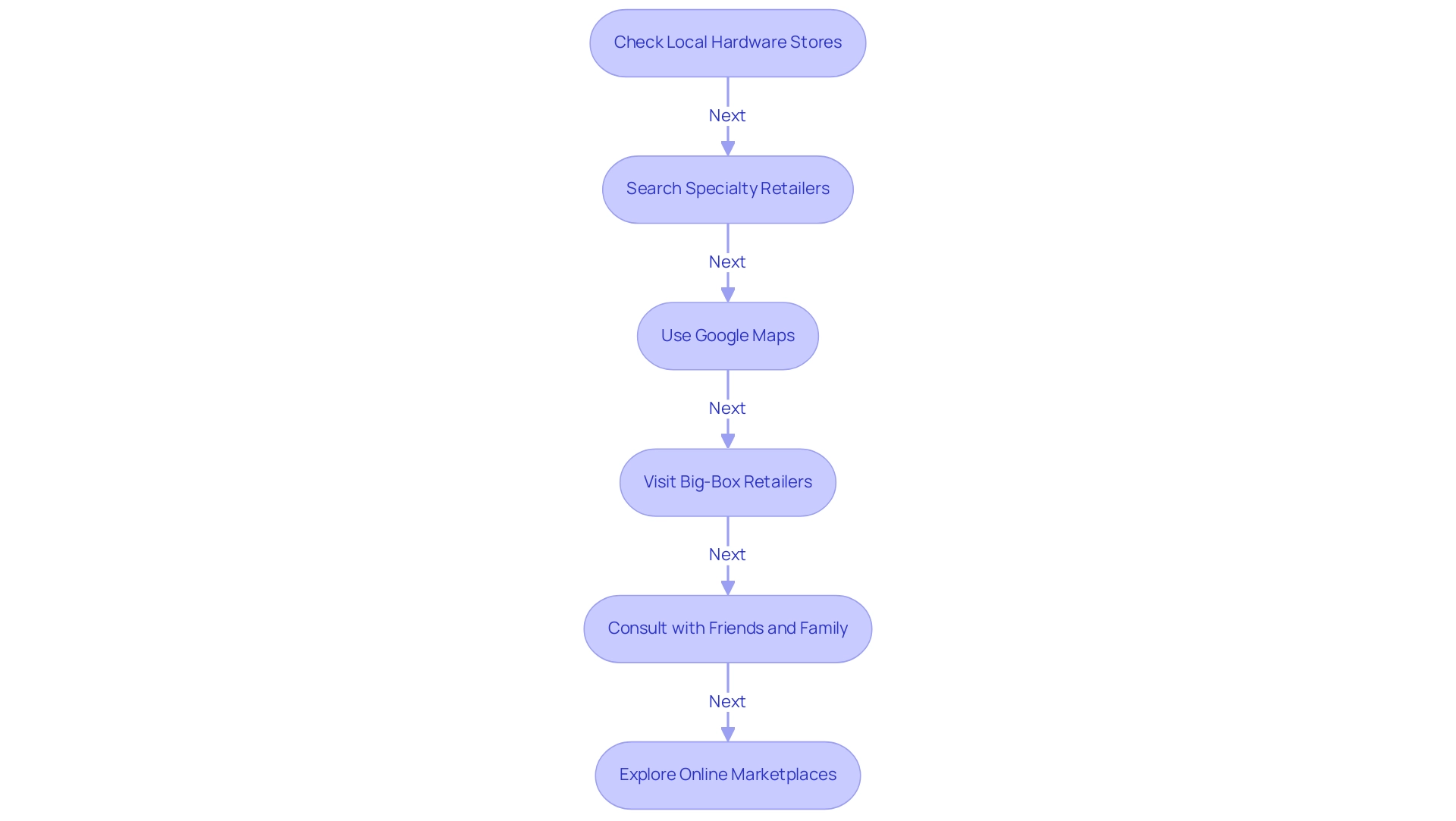Introduction
In a world where power outages can disrupt daily life, ensuring access to reliable generator batteries is more important than ever. With the growing investment in battery technology, homeowners have a wealth of options at their fingertips. From local hardware stores to specialty retailers, the journey to find the right battery can be straightforward and rewarding.
This guide will explore how to navigate the market for generator batteries, highlighting key considerations such as:
- Quality
- Types
- Local regulations
Whether looking to invest in solar storage solutions or simply seeking to understand battery specifications, this article is designed to empower homeowners with the knowledge needed to make informed decisions that enhance energy independence and promote sustainability.
Locating Generator Batteries in Your Area
Locating generator cells in your local area can be a breeze with a few simple steps, especially in a growing market influenced by significant investments in power storage technology. For example, Morocco observed declared investments totaling USD 15.3 billion in 2022, emphasizing the growing importance of sourcing for energy storage. Start by checking your nearby hardware stores and home improvement centers for a generator battery near me, as they often stock a variety of power sources essential for preparing for unexpected power outages.
Specialty retailers can also be a goldmine for specific needs. A swift inquiry on Google Maps for ‘generator battery near me’ will guide you to several excellent choices. Big-box retailers like Home Depot and Lowe’s usually have a decent selection, so be sure to pop in there as well.
Additionally, consider the forecast for lithium-ion battery reuse and recycle revenue by country, which emphasizes the importance of sustainable practices in battery usage. Don’t forget to explore electricity storage options such as the Tesla Powerwall or LG Chem RESU, which provide an eco-friendly way to harness energy and protect your home from blackouts. These systems not only store energy generated during the day but also ensure you have power during outages, making them a wise investment for renters in Long Beach.
Inquiring with friends, family, or neighbors about their preferred power sources can help locate a generator battery near me. If you’re still having trouble locating what you need, online marketplaces like Amazon and eBay can deliver right to your door. Remember, with the right resources and awareness of current market conditions—such as lithium carbonate prices being about 50% higher than their 2015-2020 average—you’ll have your generator powered up and your home ready for any energy challenges in no time!
For additional details on energy storage alternatives and to investigate available services, think about visiting local energy solution providers or reviewing online resources.
Purchasing Considerations: Quality, Warranty, and Installation
When you’re in the market for a solar storage solution, here are some friendly tips to keep in mind:
- Start by understanding the different types of solar options—lead-acid, lithium-ion, and flow—and consider their capacities and power ratings based on your energy needs.
- Additionally, pay attention to the lifespan and efficiency of each choice, as these factors significantly impact long-term performance and savings.
- A reputable power source often comes from a well-regarded brand, so take the time to read customer reviews and check the manufacturer’s warranty.
For example, many leading products like the Tesla Powerwall and LG Chem RESU come with solid warranties that ensure protection against defects, giving you peace of mind. Remember, a good warranty is valuable as it can cover issues that arise.
As you examine alternatives, take into account the financial advantages; investing in a renewable energy storage system can result in long-term savings, particularly with increasing retail electricity costs.
Don’t forget to shop around! Evaluate costs and characteristics of various energy storage options, but make sure to emphasize quality over price. By following these steps, you’ll be well-equipped to make a smart investment in a battery that enhances your energy independence and supports your eco-conscious lifestyle.
Ultimately, making an informed decision is key to maximizing your energy investment and contributing to a sustainable future. Ready to explore your choices? Reach out to Powercore Electric today to explore innovative solar energy solutions customized for your requirements!
Understanding Battery Types and Specifications
When it comes to selecting a generator battery near me, you’ll primarily encounter two options: lead-acid and lithium-ion. Lead-acid energy storage devices, such as those from established brands, are often the go-to choice for budget-conscious homeowners, as they tend to be more affordable, generally ranging from $1,000 to $2,000 per kWh of power storage. However, they come with a few caveats—namely, they have a shorter lifespan and require regular maintenance to keep them running smoothly.
In fact, the average discharge rate for lead-acid cells highlights their performance limitations, making their long-term reliability a concern. On the other hand, lithium-ion cells, such as the Tesla Powerwall and LG Chem RESU, although more expensive initially, provide the benefit of a longer lifespan and considerably reduced maintenance, which can save you time and trouble in the long term. Their compact design and efficiency make them increasingly popular among eco-conscious homeowners looking to maximize their energy storage capabilities.
One crucial specification to consider is the amp-hour rating, which indicates how long your unit can power a generator under load. Ensuring that the specifications of the power source align with your generator battery near me requirements is essential for compatibility and optimal performance. Recent advancements in energy storage technology, including research on innovative materials like advanced lead-alloy grids, aim to enhance the performance of lead-acid systems, making them more competitive against lithium-ion options.
Additionally, the incorporation of virtual power plant business models can increase the worth of your energy storage investment by engaging in flexibility markets, enhancing grid stability and efficiency. As you navigate your choices, remember that selecting the right power source is not just about cost; it’s about finding the best fit for your unique needs and sustainability goals. So, whether you opt for the traditional lead-acid or the modern lithium-ion, be sure to weigh your options carefully to power your home efficiently and support a cleaner, greener future.
Checking for Local Regulations and Recycling Options
Before diving into your generator power source purchase, it’s crucial to take a moment to familiarize yourself with local regulations regarding disposal and recycling. Each area frequently has specific guidelines aimed at preventing environmental contamination from waste. For instance, in South Dakota, since the law effective 7/1/92 allows for a refundable deposit on automobile batteries, it’s clear that state regulations are in place to encourage responsible recycling.
Additionally, Massachusetts has a refundable deposit that varies, effective from 12/31/90, further emphasizing the importance of understanding regional regulations. You can typically find helpful recycling programs at nearby waste management facilities or even through retailers that offer take-back initiatives. As noted by SC’s Department of Health and Environmental Control, if a retailer charges more than the regulatory fee of $5.00, they must inform consumers that this excess is not mandated by the state but is an additional charge.
This transparency is crucial for consumers. Furthermore, the South Dakota Lead-Acid Power Cell Regulation illustrates the real-world implications of these laws, as it applies specifically to automobile power sources. By adhering to these local regulations and utilizing available recycling resources, you not only ensure that your old batteries are disposed of responsibly but also contribute to a sustainable environment, aligning your actions with community efforts toward greener practices.
Conclusion
Navigating the world of generator batteries doesn’t have to be overwhelming. By understanding where to find quality options, considering the right specifications, and staying informed about local regulations, homeowners can make empowered choices that enhance their energy independence. Local hardware stores, specialty retailers, and even online marketplaces provide a wealth of resources for sourcing the right battery for individual needs.
When it comes to purchasing, focusing on quality, warranty, and installation can lead to long-term satisfaction and savings. Whether opting for lead-acid or lithium-ion batteries, being mindful of their capacities and efficiencies is crucial for maximizing performance. The right battery not only supports energy needs during outages but also aligns with sustainable practices that benefit both the environment and the homeowner’s wallet.
Finally, understanding local regulations regarding battery disposal and recycling fosters responsible practices that contribute to a cleaner community. By taking these considerations into account, homeowners can confidently invest in generator batteries that not only power their homes but also support a greener, more sustainable future. The journey towards energy independence is within reach—empower yourself with knowledge and make informed choices today.



